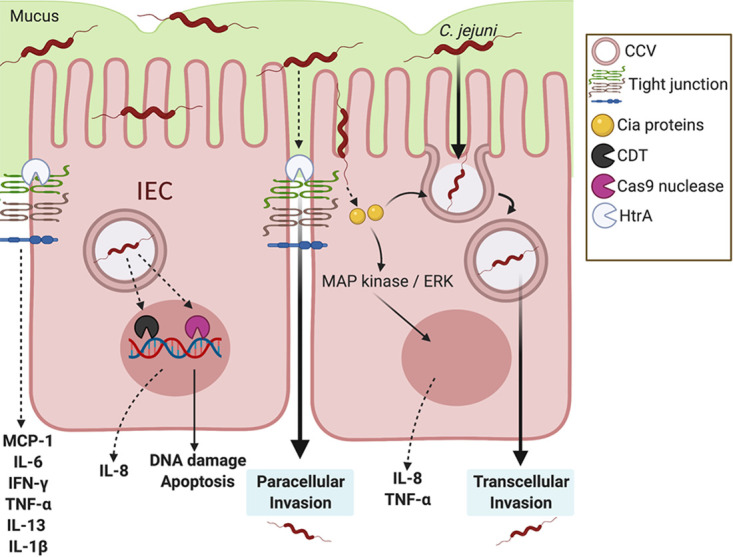FIG 1.

Influence of C. jejuni on intestinal epithelial cell immune signaling. For DNA damage, instead of canonical gastrointestinal effector proteins, C. jejuni is able to secrete the CDT genotoxin and Cas9 nuclease. Both result in DNA damage, apoptosis, and potential upregulation of the neutrophil chemoattractant IL-8. For transcellular invasion: C. jejuni secretes Campylobacter invasion antigens (Cia proteins) possibly through a type III flagellar secretion system, in which it activates the MAPK/ERK pathway. C. jejuni enters the intestinal epithelial cell and is bound within a Campylobacter-containing vesicle (CCV) as it travels through the cell. Microtubules and actin are utilized by C. jejuni to travel from the apical side toward the nucleus and basolateral side of the cell. For paracellular invasion, C. jejuni is able to reach the basolateral side of the IECs by passing between cells through HtrA tight junction cleavage, rather than through the cell itself. This tight junction disruption results in the upregulation of proinflammatory cytokines.
